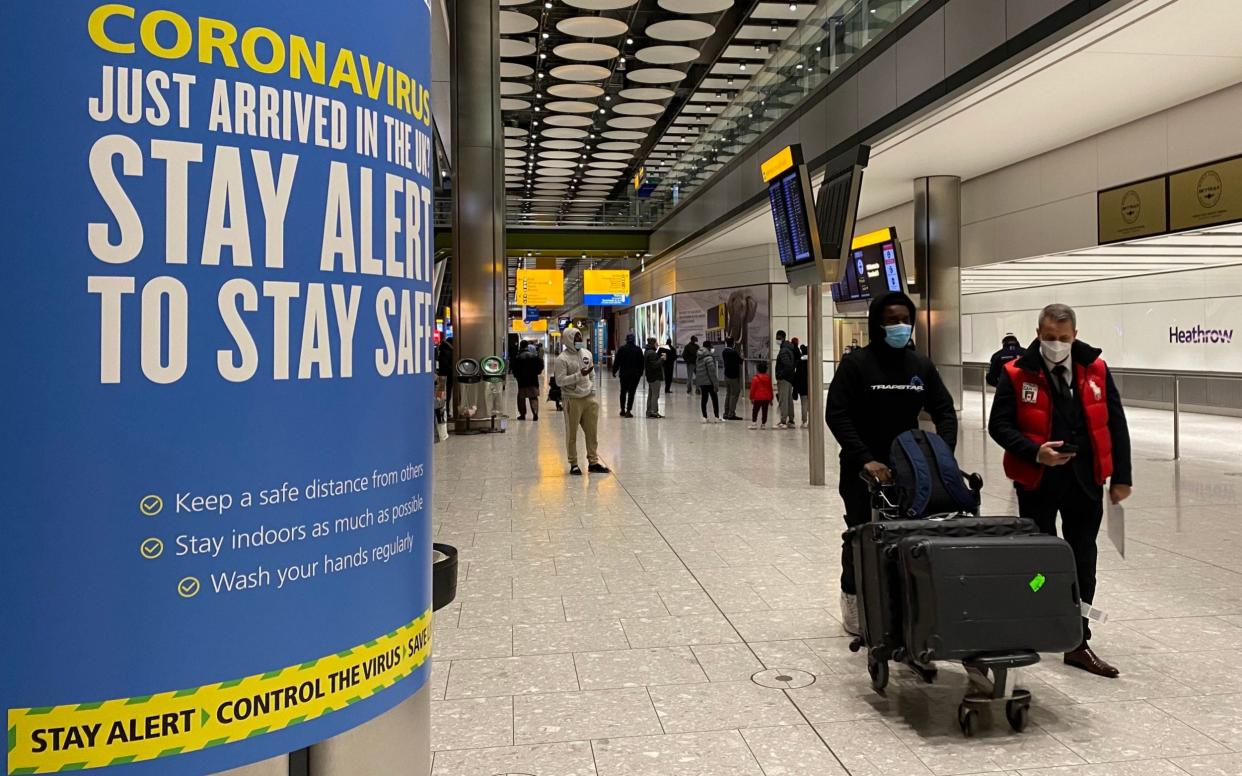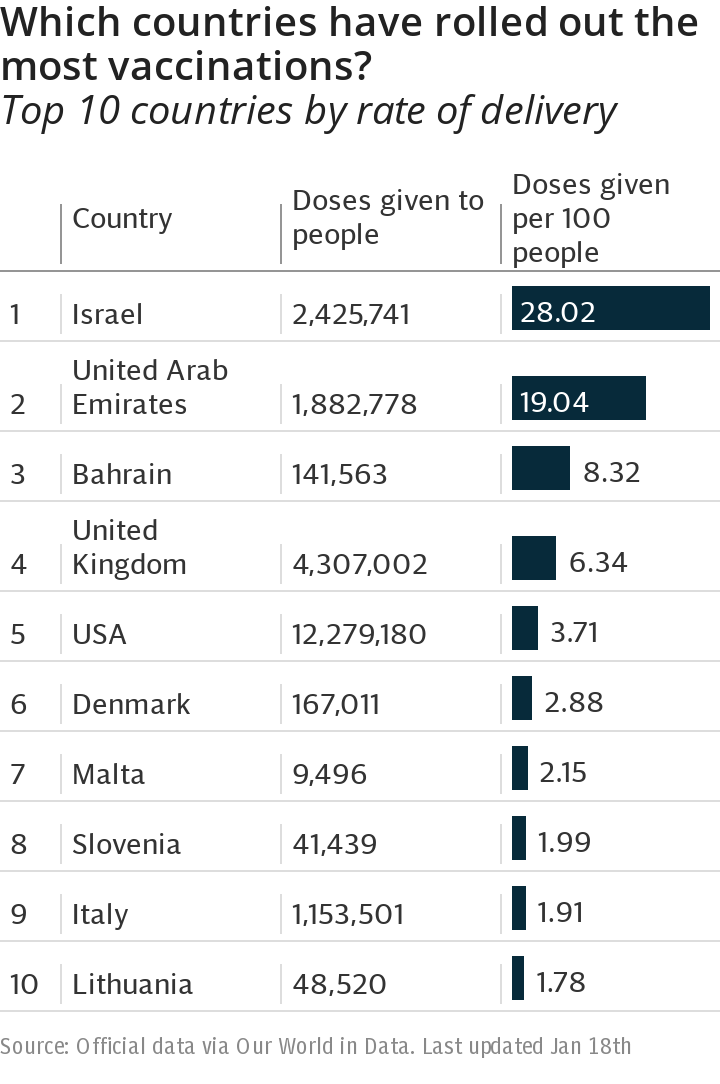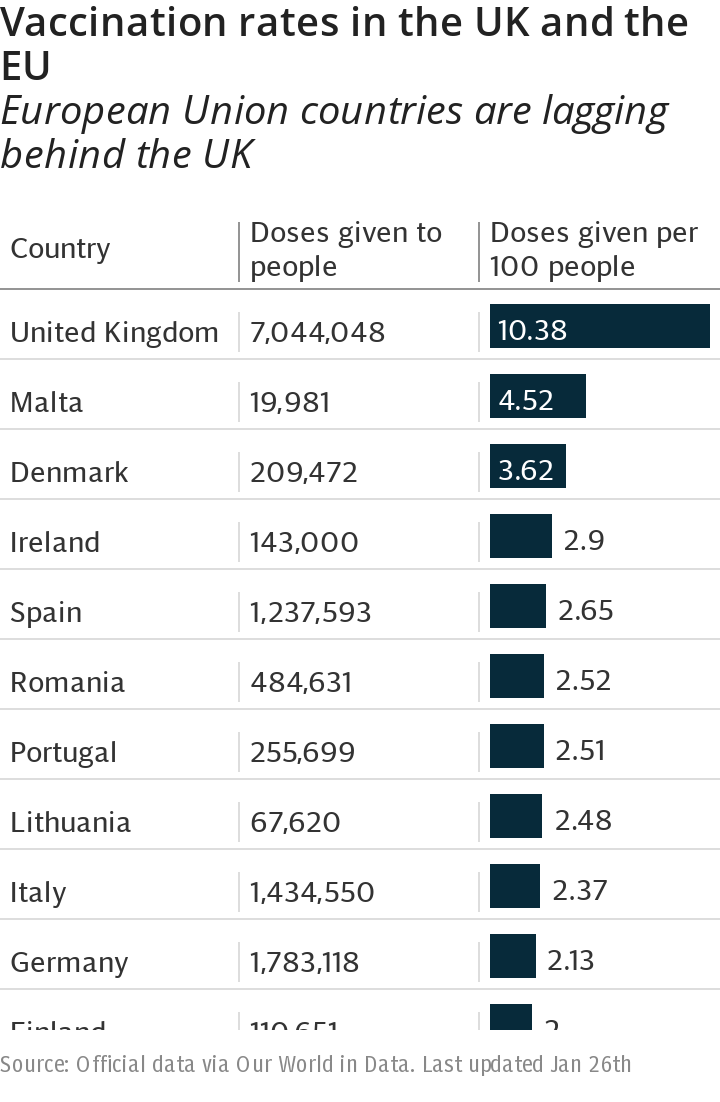Fears of ‘vaccine apartheid’ as countries mull immunisation passports


The launch of vaccines passports could divide old and young as well as rich and poor, leading to a global system of “vaccine apartheid”, an expert warned on Monday.
Yet across the world governments and airlines are examining vaccine passport schemes which many expect to become widespread in the next few months if one or more of the jabs currently being distributed proves effective against transmission of Covid-19.
Several countries, including Israel, already have firm plans to launch vaccine passports while others such as Greece, Italy, Spain and Portugal are lobbying for them.
The European Union as a whole is also considering some kind of certificate with ministers meeting to discuss this on Monday.
Maros Sefcovic, a European Commission vice president, said vaccination could become a condition for travel, like current requirements in many countries for a negative Covid test.
"There will be different options how we handle travel ... the possibility of the electronic vaccination certificate could be added," he said.
Perhaps most significantly, airlines are considering making proof of vaccination a condition of being able to fly in much the same way as many now insist on a negative test as a condition of boarding.
“From an ethical point of view vaccine passports are completely unacceptable. You’re going to create a two-tier system and history shows that when you create division within society it leads to civil unrest. It’s vaccine apartheid,” said Dr Clare Wenham, assistant professor of global health policy at the London School of Economics.

Dr Wenham added that in richer nations the most stark divide would likely be between young and old as it was older people who were being vaccinated first.
In the UK, for example, the government estimates that all adults over 50 will be inoculated in time for the summer but many younger people will not receive their jab until the autumn.
She added: “On a global level it will affect poorer countries and it’s going to entrench inequality. It will take a number of years for everyone in the world to be vaccinated and people in poorer countries won’t be able to travel or have access to opportunities.
“It will also penalise the small number of people who can’t get vaccinated for medical reasons.”
Nevertheless, across the world policy makers are studying vaccine passports, considering them not just as a means to free up safe travel again but to allow those holding “protected status” greater domestic freedoms. Here is a run down of the key issues and countries involved:
Do vaccines prevent transmission?
None of the vaccines approved to date have been shown to stop or even slow transmission of the virus - the key to a useful vaccine passport. Instead the phase three clinical trials only tested for their ability to prevent severe Covid 19 symptoms and illness.
But experts expect some or all of the vaccines to have some impact on transmission. This data should become available in the next few months as the real-world rollout of vaccines gathers pace. If some vaccines block all or most transmission, they could become the most prized among individuals, countries and airlines that decide to use vaccine passports.
Paper or digital?
Digital systems that use a common shared standard are being considered in Asia and Europe. But there are privacy concerns, mirroring the debate last year over test and trace apps. In that debate, decentralised databases that allow individuals to reveal their status without governments being able to see their data were the clear winner. Expect the same with digitised vaccine passports.

But it is probably wrong to think that vaccine passports will hinge on digital systems. Just as paper copies of negative Covid test results are used by border officials and airlines all over the world, the same is likely to be true of vaccines. For many years it has been impossible to enter large parts of Africa without a yellow fever vaccine certificate. This is a simple paper document provided by a doctor or pharmacist. Expect the same for Covid vaccines.
Travel or more?
Vaccine passports could be used for much more than just international travel and could enable people to gain entry to theatres, the cinema and restaurants. In the UK, there is already serious debate over whether front line health care workers should be allowed to continue working if they refuse to be vaccinated.
The UK
UK government ministers have given out mixed messaging on vaccine passports. Before Christmas, Michael Gove said there were no plans to introduce them whereas the vaccines minister, Nadhim Zahawi, has said they are being considered.
Last week the government announced that it was launching a trial of an app which will help the NHS keep track of the number of people that have received a vaccine. But the technology is also likely to be used, informally at least, as a proof of vaccination.
Israel
Israel is considering two types of ""green" passport. The first is valid for only 72 hours and is given to those with a negative PCR test for coronavirus. The second is a permanent passport for anyone who has had their first of two vaccine doses.
In both cases, the document would allow people to go to concerts, theatres and cinemas, and eat out. They will also enable people to travel abroad without a negative Covid test on departure, or a period of self-isolation on return.
Those with green passports will also be exempt from contact tracing, meaning they would not have to self-isolate if they were exposed to an infected person.
The scheme is still in its early stages of development and Yuli Edelstein, the Israeli health minister, says he hopes to team up with other countries to encourage tourism and travel. However, the country is still in its third nationwide lockdown, which is widely expected to be extended at the end of the month due to high infection rates.
Italy
Italy is beginning to consider the idea of kick-starting travel and tourism by issuing some sort of vaccination certificate.
“There are those who are proposing the so-called vaccine passport. It’s a question that in the next few weeks we need to start discussing,” said Stefano Bonaccini, the governor of Emilia-Romagna, a northern region which has been hit hard by Covid-19.
“We need to discuss whether it could help the recovery of all the commercial activities which are today closed, from cinemas, theatres and museums to restaurants.”
Luca Zaia, the governor of Veneto, another northern region that was badly affected in the first wave of the pandemic, said: “It’s inevitable that we will head toward a vaccination passport. This is not ghettoisation, but it’s inevitable that if an airline company wants only vaccinated passengers, those who are not vaccinated will not travel.”

Spain, Portugal and Greece
Spain, Portugal and Greece have said they welcome proposals for a vaccination passport as they all rely heavily on tourism.
Sources from the Spanish government, quoted by the online newspaper El Diario, said “there must be an agreement on a mutual recognition mechanism because it is urgent to consolidate levels of mobility, which have an impact on the economy in general, not just tourism”.
Portuguese Prime Minister António Costa said: "It is essential that we find a way to ensure free movement in Europe and that no one has to close their borders. For countries like Portugal or Greece, tourism is important, so it is essential that we feel safe when next summer arrives. Those who have to travel and work have to feel safe, and this could be done through negative tests or certificates, which must be standardised."
Spain has also touted a "reverse" passport, saying it will register those who refuse a vaccine and share anonymised data with other European countries.
France
After deep initial scepticism, the majority of French are now in favour of both vaccines and vaccine passports, according to an Ifop survey, which found that 62 per cent of French think they should be de rigueur for air travel.
However, France is currently officially still against them. Europe minister Clément Beaune told France Info: "This is a debate that shouldn't be happening and it would be shocking just as we are still just kicking off this vaccination campaign in Europe for some people to have more rights than others.
"That's not our conception of protection and access to vaccines," he said.
However, he added, once mass vaccination had taken place, "that's another matter". In fact, in December the French government had tabled a draft law on health emergencies seen by many as evidence of a desire to introduce vaccine passports. However, due to criticism, it shelved the draft, whose first article laid the legal groundwork for such passports.
Asia
Asian governments and airlines have already expressed an interest in vaccine passports. At the end of December, Singapore Airlines started trials on a new digital health verification process, which would offer passengers the ability to securely store Covid-19 test information, as well as their vaccination status.
The method was tested on the Kuala Lumpur and Jakarta to Singapore routes, and required passengers to take a test at a selected clinic where they were given a digital or paper health certificate with a QR code. The authenticity of the certificate can be checked by immigration authorities via a secure app.
Korean Air has already indicated that it was reviewing several possibilities for screening. Jill Chung, a spokesperson, said there was a real possibility that airlines will require that passengers be vaccinated as governments are likely to require them as a condition for lifting quarantine requirements for new arrivals.
“This is not something for airlines to independently decide,” she added.
In Taiwan, Chen Shih-chung, the health minister, said in December that such passports would be hard to develop but were a good idea as a means to get global travel going again.
“But we look forward to this kind of strategy being developed, so everyone can have a clearer grasp of the health or vaccination situation” of people, he said. “While there’s no way it can be 100 per cent, if an authentication mechanism between countries and ports can be developed it would be helpful.”
Protect yourself and your family by learning more about Global Health Security


